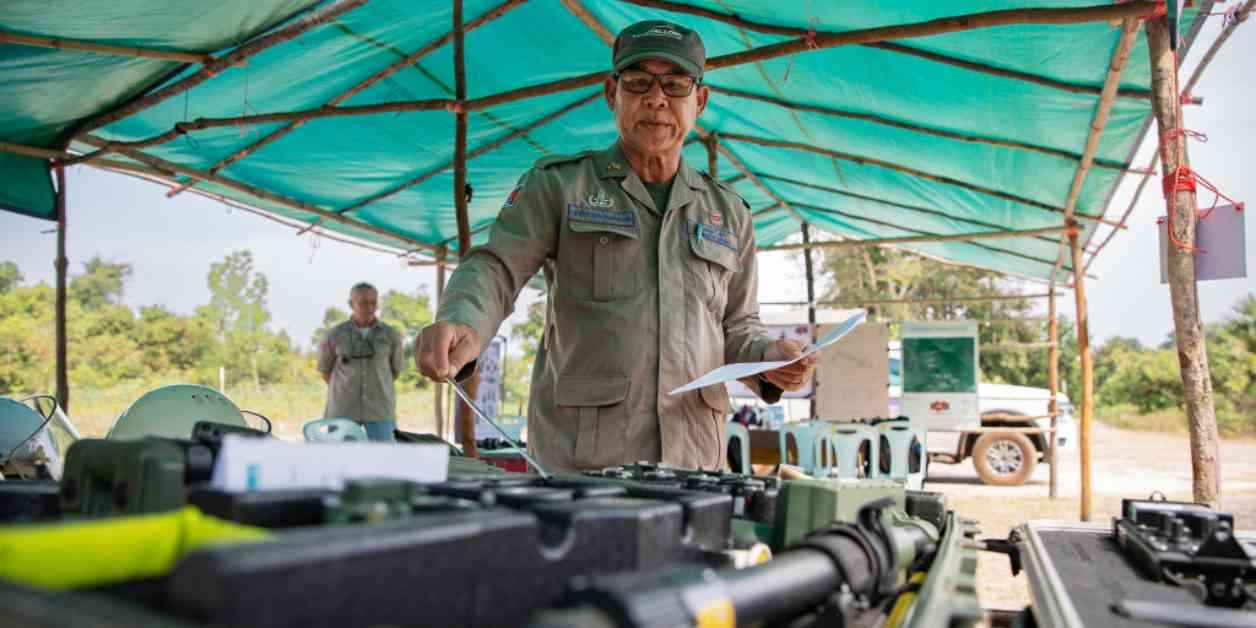The Trump administration has recently ordered a 90-day suspension of all foreign aid, including vital funding for demining programs in Southeast Asia, affecting the U.S. mine clearing efforts in Cambodia and Laos. This decision has far-reaching consequences, jeopardizing decades of work to remove landmines and unexploded ordnances in the region. The impact of this suspension on local communities is already being felt, with various organizations struggling to continue their life-saving work.
Impacts on Demining Efforts in Southeast Asia
In Southeast Asia, the remnants of past conflicts, such as the Vietnam War, have left the region heavily contaminated with landmines and unexploded ordnances. Organizations like the Cambodian Self Help Demining (CSHD) have been at the forefront of demining efforts, working tirelessly to clear these hazards and make the land safe for local communities. With the suspension of U.S. foreign aid, these organizations are facing challenges in sustaining their operations and ensuring the safety of those living in affected areas.
The U.S. has been a key donor in mine action programs in Vietnam, Laos, and Cambodia, providing crucial support for demining activities. The Landmine and Cluster Munition Monitor ranked the U.S. as the top donor in Vietnam and Laos and second only to Japan in Cambodia. The suspension of aid not only threatens the progress made in clearing landmines but also raises concerns about the safety and well-being of individuals living in these hazardous areas.
Challenges and Consequences of Aid Freeze
The decision to halt foreign aid funding has sparked outrage and concern among demining organizations and local communities. Individuals like Bill Morse, who co-founded the Landmine Relief Fund and has been fundraising for demining groups for over 20 years, are deeply troubled by the potential ramifications of this suspension. Morse’s dedication to demining efforts stems from a sense of responsibility instilled in him by his mother, reflecting the human cost of these deadly remnants of war.
The impact of the aid freeze extends beyond demining activities, affecting other critical services provided by NGOs in Cambodia. Organizations that offer HIV treatment, tuberculosis screening, and early education are grappling with the sudden loss of funding, further straining resources and jeopardizing the well-being of vulnerable populations. The ripple effects of this decision are far-reaching, highlighting the interconnectedness of aid programs and the importance of sustained support for humanitarian efforts.
Urgency of Continued Support and Collaboration
As demining efforts face uncertainty due to the aid suspension, the need for collaborative action and international support becomes increasingly urgent. Yoshinara Asada, an adviser with the Japan International Cooperation Agency, emphasizes the importance of a joint effort to address the challenges posed by landmines and unexploded ordnances. The suspension of U.S. aid not only disrupts ongoing demining activities but also risks undermining the progress made in building safer communities in the region.
The vacuum left by the aid freeze creates an opportunity for other nations, such as China, to step in and fill the funding gap. However, the politicization of foreign aid and the use of aid as a bargaining tool can have detrimental consequences, pushing countries into the arms of rival governments and compromising the shared goal of ensuring the safety and security of affected populations. The decision to suspend aid funding raises questions about the moral obligations of nations that have been involved in conflicts and the responsibility to address the legacy of war.
In conclusion, the suspension of U.S. foreign aid for demining programs in Southeast Asia poses a significant threat to the progress made in clearing landmines and unexploded ordnances. The impact of this decision extends beyond demining activities, affecting critical services and putting vulnerable populations at risk. As demining organizations navigate the challenges posed by the aid freeze, the need for continued support, collaboration, and a shared commitment to clearing these deadly remnants of war remains paramount.


